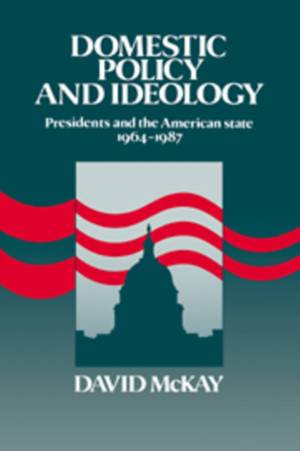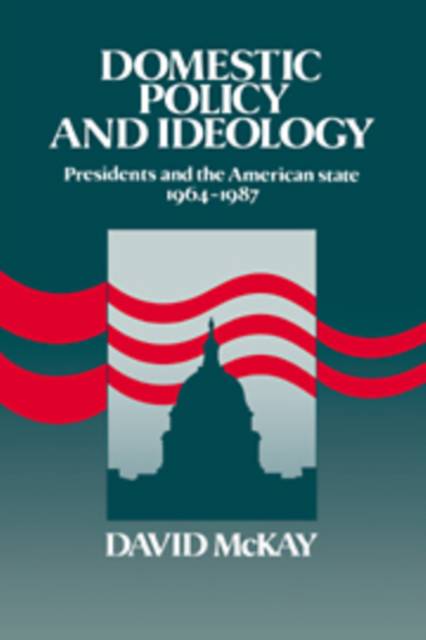
Door een staking bij bpost kan je online bestelling op dit moment iets langer onderweg zijn dan voorzien. Dringend iets nodig? Onze winkels ontvangen jou met open armen!
- Afhalen na 1 uur in een winkel met voorraad
- Gratis thuislevering in België vanaf € 30
- Ruim aanbod met 7 miljoen producten
Door een staking bij bpost kan je online bestelling op dit moment iets langer onderweg zijn dan voorzien. Dringend iets nodig? Onze winkels ontvangen jou met open armen!
- Afhalen na 1 uur in een winkel met voorraad
- Gratis thuislevering in België vanaf € 30
- Ruim aanbod met 7 miljoen producten
Zoeken
Domestic Policy and Ideology
Presidents and the American State, 1964 1987
David McKay
Paperback | Engels
€ 60,95
+ 121 punten
Uitvoering
Omschrijving
The presidential leadership in America can and does make a great deal of difference as to what is debated and eventually legislated. At the same time presidents are obviously constrained by what is always a complex and difficult political environment. This study examines the interaction between presidential policy preferences and the political environment, concentrating on welfare and urban policy and intergovernmental relations under Johnson, Nixon, Carter, and Reagan. The author traces the origins of domestic initiatives, assesses the intellectual coherence of policies, and examines the way in which the four presidents adapted their strategies according to the fortunes and experience of implementing policies. He measures the independent influence of the White House on policy and draws conclusions for theories of American political development, in particular for the opportunities and constraints provided by the fragmentation of the New Deal political regime.
Specificaties
Betrokkenen
- Auteur(s):
- Uitgeverij:
Inhoud
- Aantal bladzijden:
- 236
- Taal:
- Engels
Eigenschappen
- Productcode (EAN):
- 9780521102209
- Verschijningsdatum:
- 8/01/2009
- Uitvoering:
- Paperback
- Formaat:
- Trade paperback (VS)
- Afmetingen:
- 152 mm x 229 mm
- Gewicht:
- 349 g

Alleen bij Standaard Boekhandel
+ 121 punten op je klantenkaart van Standaard Boekhandel
Beoordelingen
We publiceren alleen reviews die voldoen aan de voorwaarden voor reviews. Bekijk onze voorwaarden voor reviews.











